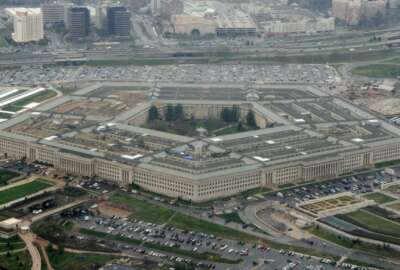Air Force investing in privatized housing, lawmakers are not sold on the idea
The Air Force requests $140 million for privatized family housing projects at two of its bases in fiscal 2025. Lawmakers are not quite sold on the idea.
The Air Force is requesting $140 million for privatized family housing projects at two bases in 2025. Lawmakers, however, are expressing concerns about funding additional privatization efforts.
“We do not own the units. These are units that the private companies assumed responsibility for years ago.” Rep. Debbie Wasserman Schultz (D-Fla.) said during the House Defense Appropriations Subcommittee hearing Wednesday.
“I’m going to continue to ask why it should be the government’s and not the private companies’ responsibility to cover these additional costs for sustainment and reinvestment. And importantly, how will this funding help service members and their families and not just help bailing out the private companies?”
Privatized military housing, which is managed by private companies under a contract with the base, has been a point of contention for some time now. Substandard living conditions, including mold, pest infestations, lead paint, and water leaks, have plagued privatized housing and companies responsible for managing housing have been criticized for failing to address maintenance issues promptly. But given financial constraints, there has been growing support for privatized housing efforts.
“We go from 2019 when the privatized housing providers are the worst thing in the world to now, which is, ‘We should privatize the barracks. It’s a great idea, let’s go do this.’ Because we know we don’t have that cash. And even if we did have that cash, you would be pushing out these major modernization programs,” Matt Borron, the Association of Defense Communities executive director, said during the Defense Communities National Summit on April 9.
Air Force installations boss Ravi Chaudhary said the service’s oversight program to monitor private companies has yielded positive results.
This year, the service held a project owner at one of the Air Force installations accountable for roughly $58 million to address mold issues in over 1000 units.
In 2023, the service held another project owner accountable for about $32 million, and then another $33 million in 2024, to address safety issues.
“Our oversight program is yielding gains on us and that’s going to bring our number of restructures down,” said Chaudhary.
Additionally, the service added 218 resident advisors to help service members resolve any housing issues along with their chain of command.
Still, the Air Force’s privatized housing funding request is “significantly” higher than what the other services requested for 2025.
“I get that you have lease constraints. And there are a number of factors outside of the company’s control, like the [Basic Allowance for Housing], and you have occupancy rates that affect it. What steps are you taking to ensure that if a restructure of a project is necessary, the new agreement better ensures that privatized housing providers, not the Air Force, are responsible for operating and maintaining the units?” said Schultz.
Chaudhary said that rather than providing a lump sum of money without any oversight, the service would actively monitor how the funds are being used.
“We’re going to make sure that any improvements we make have a direct impact on the military members and the challenges that we’re facing. We do that face-to-face with the installation command. And the members that are giving us direct feedback and resident advocates who we can directly talk to on what our individual homeowners are experiencing,” said Chaudhary.
If contractors are not consistent with performance standards, the service puts them on a watch list. Those contractors get a notice from the headquarters about the areas they need to improve upon.
One of the main indicators of how contractors are performing is residents’ feedback. If they are not performing well, they go on that watch list.
“Watch list is pretty impactful because it really puts the focus of the installation and headquarters on that particular project owner,” said Chaudhary.
“Ultimately, if they fail in all three levels, will go back and go to a default situation. That progressive approach, we believe, has been yielding some good results, especially with our newer project owners.”
The service is also considering privatized housing for unaccompanied airmen at isolated bases.
This year, the service is planning to invest about $1.1 billion in its dormitories. It’s the largest investment the service has made in modernizing its facilities in over a decade. The first privatization project for unaccompanied housing will be at Edwards Air Force Base in California.
Copyright © 2025 Federal News Network. All rights reserved. This website is not intended for users located within the European Economic Area.






